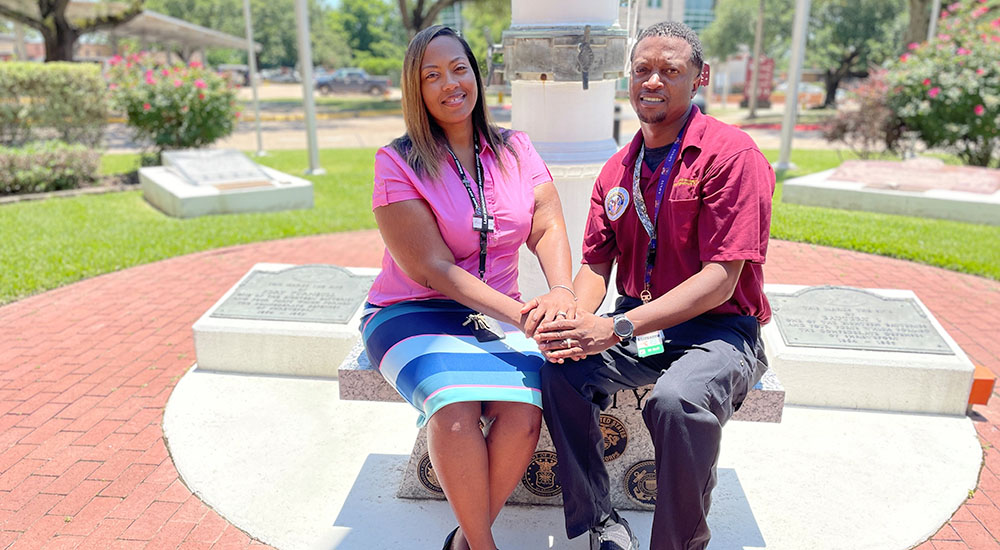In the early days of the pandemic, Brandy Allen, a health system specialist at Overton Brooks VA Medical Center, received some troubling news. She tested positive for the coronavirus.
Adding to the complication of the diagnosis is her struggle as a lifelong type-1 diabetic, a condition she has had since childhood.
“Around day four, I got really sick,” Allen said. “I went to the emergency room and they said I was suffering from kidney failure. It was terrifying.”
A few months later, doctors started hemodialysis, which uses a special filter or a dialyzer to clean the blood. Most of her doctors believed her kidneys would rebound. Acute kidney failure is marked by a timeline of fewer than 90 days. Soon they would surpass the 100-day mark, which meant Allen’s condition was chronic – and dangerous.
That touched off a search to explore additional options. Allen visited several states with her husband, Levar, to search for a kidney donor.
Wait for a kidney can take years
The Shreveport couple (pictured above) found out there is a long list to receive a kidney transplant. The wait can be anywhere between three and seven years.
Allen’s husband, a Navy Veteran and housekeeping aid in Environmental Services at the Shreveport VA, was aware of the risks involved.
“I can’t lose her,” he said. “That was my first thought. We’re gonna do whatever we need to do.”
Levar started asking more specific questions to the health care specialists without telling Brandy his intent. Levar wanted to see if he would be a match.
“I didn’t tell her what I was doing because I didn’t want to disappoint her if we didn’t match,” he added.
“I knew we were destined to get through this.”
After making it through several rounds of testing, the pair received some hopeful news from Baylor University Medical Center of Baylor Scott and White in Dallas, Texas.
“They kept coming back and saying, ‘You passed the first test, then the next, then the next one,” Levar said. “I knew in my heart we were destined to get through this together.”
Organ donors are required to meet strict medical criteria to qualify as transplant contributors.
“I got choked up and tearful that someone loves me enough to do that, but at the same time, I didn’t want my husband to be at risk,” Brandy said.
Transplant scheduled for next month
A member of the transplant team later told her what Levar said during the difficult testing process.
“She was there for me during tough times and I’m going to be there for her,” he said.
The transplant operation is scheduled for next month in Dallas, Texas.
Organ donors are always needed. To find out how you can save a life visit www.organdonor.gov.
Mark Woodall is a public affairs specialist at the Overton Brooks VA Medical Center.
Topics in this story
More Stories
The Medical Foster Home program offers Veterans an alternative to nursing homes.
Watch the Under Secretary for Health and a panel of experts discuss VA Health Connect tele-emergency care.
The 2024 National Veteran Suicide Prevention Annual Report provides the foundation for VA’s suicide prevention programs and initiatives.






